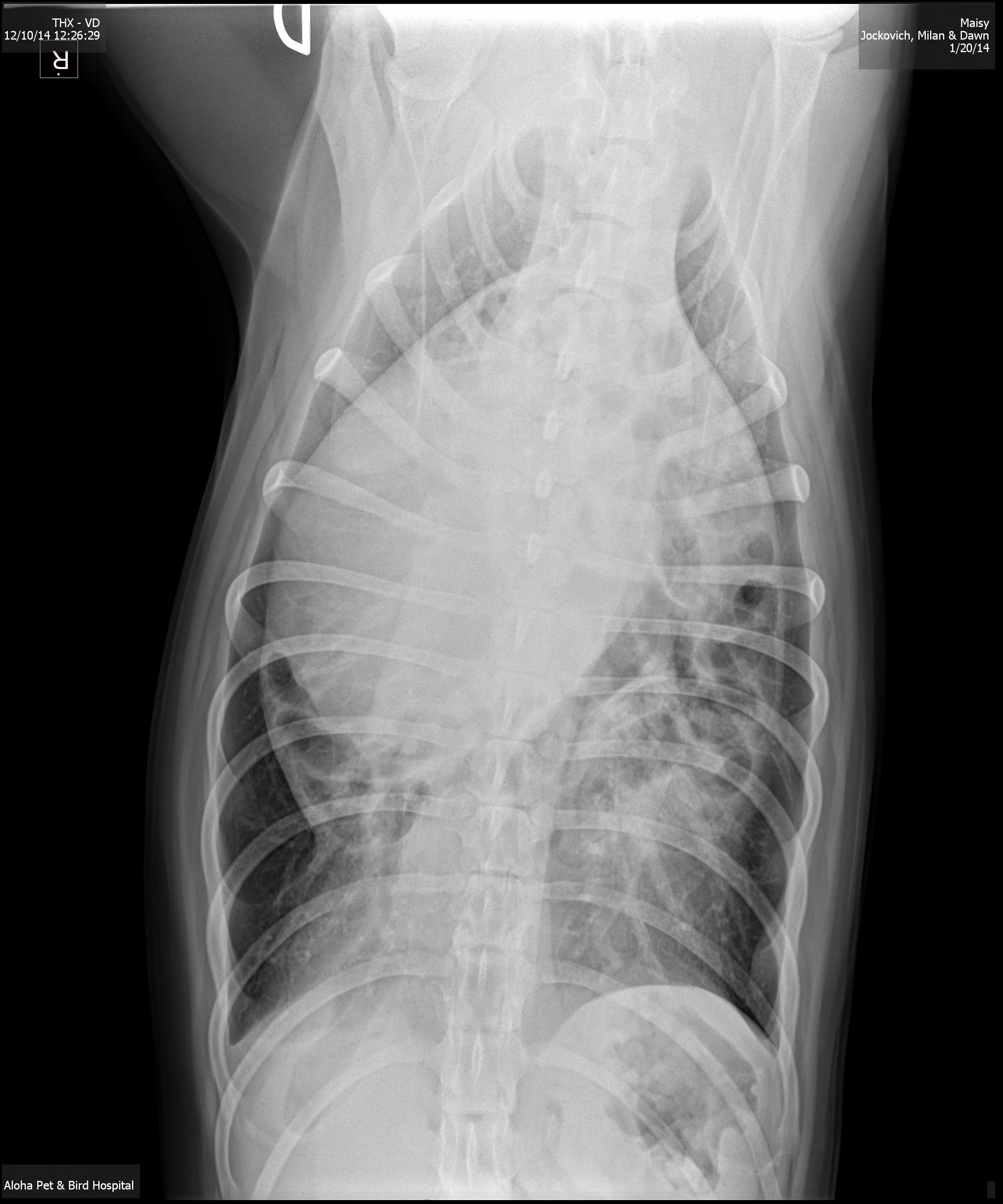
Peritoneopericardial Diaphragmatic Hernia
What is the prognosis? Will my pet have a normal life?
What are the risks if I don't do surgery?
A peritoneopericardial hernia is a congenital defect - present at birth
Hernia/defect connecting the abdominal cavity to the pericardium (the sac around the heart)
- Usually a relatively large defect that allows abdominal organs (commonly intestine) to move freely into the pericardial sac
- Often also has other congenital defects are common, such as other hernias (often umbilical) or cardiac/heart defects
- Often not diagnosed until later in life because may not cause clinical signs earlier
- If structures present within the pericardial sac enlarge or cause fluid production, they can compress the heart and affect function, leading to right-sided congestive heart failure (fluid in the chest or abdomen)
- intestines can become dilated
- liver can become swollen if its blood supply is compromised, or by other diseases, including tumors
- strangulated intestines or other signs can cause urgent, life-threatening problems
- Increased respiratory (breathing rate)
- Vomiting or decreased appetite
- Weight loss
- Abdominal pain
- Abdominal fluid distension - possibly caused by congestive heart failure from contents' pressure on the heart
- Exercise intolerance
- Shock/collapse
- Physical exam findings
- Muffled heart sounds
- Heart murmur if heart defects present
Diagnosis is typically made by radiographs (x-rays)
- Presence of gas or feces filled bowel over the heart (and not spread throughout the chest cavity) on two views
- The top film is a lateral view (from the side) and shows not only the air-filled loops of bowel focally surrounding the heart, but also that there is no division between the diaphragm and heart.

- The bottom film is a ventral dorsal view (from front to back) confirms the above findings, showing that the bowel is definitely within the pericardial sac (as opposed to being beside it, which might have the same appearance on a single film)
Ultrasound may help rule out other disease
- Surgical exploration
- Reduction of the abdominal organs into the abdominal cavity
- Removal of any dead/devitalized tissue
- Separation of pericardium from the diaphragm and closure of the diaphragm

- While this is a more involved surgery, due to entering the chest cavity, in the hands of an experienced surgeon, most pets typically do well
- Most pets can return to a normal life with no long-term consequences
- This is a happy post-op patient a few weeks post-op
- It is a common misconception that if something hasn't caused a problem yet, that it never will.
- The first part of the sentence is true...it hasn't caused a problem YET.
- A pet with this disease is at great risk for sudden, life-threatening problems, while the risk is much smaller if surgery is performed when your pet is stable.
Please schedule an appointment with our board-certified surgeon, Dr. Jeff Christiansen at the clinic of your choice, to discuss peritoneopericardial hernias and surgery to improve your pet or patient's length and quality of life.
If you have additional questions, please feel free to e-mail Dr. Christiansen directly.



